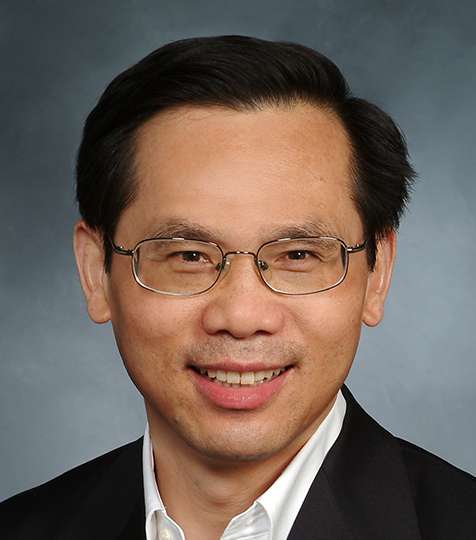
Research
Question:
Exploring the Structural Basis of Transmembrane Receptors and Strategies to Halt Tumor Metastasis.
Approach:
1. Structural Basis of Transmembrane Signaling: Our research delves into the intricate interactions between G-protein-coupled receptors (GPCRs) and G-proteins, key players in biological signaling. Despite a basic understanding of this signaling system, the specific molecular mechanisms of critical steps, such as the activation of G-proteins by GPCRs, remain unclear. We utilize advanced cryo-electron microscopy (Cryo-EM) techniques to investigate these molecular intricacies. Additionally, our studies extend to analyzing the structural basis of single-pass transmembrane receptors, aiming to provide a comprehensive understanding of transmembrane signaling processes.
2. Addressing Tumor Metastasis Through Drug Development: Tumor metastasis, the primary cause of cancer fatalities, is at the forefront of our research. We focus on the underlying mechanisms of tumor cell migration and invasion, identifying key proteins that drive these processes. Targeting these proteins for drug development, we aim to create effective treatments to curb tumor metastasis. Our research also encompasses exploring the roles of dendritic cells in cancer immunotherapy, contributing to the development of comprehensive cancer treatment approaches.
Current Projects:
1) Structural biology
2) Cancer
Bio
Huang completed his undergraduate studies in biology at Wuhan University, China, in 1983. Following this, he was selected for the prestigious CUSBEA (China–United States Biochemistry Examination and Application) program, facilitating his move to the U.S. for advanced studies. He earned his PhD in biochemistry and biophysics from the University of Houston (1984-1988). His postdoctoral endeavors took him to Columbia University in the Department of Biochemistry and Molecular Biophysics. He worked as an associate research scientist at Harvard University in the Department of Biochemistry and Molecular Biology. In 1994, he joined the faculty at Cornell University.
Distinctions:
- Cornell Scholar (1994)
- Beatrice F. Parvin Investigator of the American Heart Association (1995)
- Irma T. Hirschl Career Scientist Award (1999)
- Research Scholar, American Cancer Society (1999)
- Established Investigator, American Heart Association (2000)
- Charles H. Leach Foundation Scholar (2001)
- Fellow, American Association for the Advancement of Science (2012)
Selected Publications:
1. Structural Basis of the Activation of Heterotrimeric Gs-Protein by Isoproterenol-Bound β1-Adrenergic Receptor. https://www.sciencedirect.com/science/article/pii/S109727652030544X
2. Fascin inhibitor increases intratumoral dendritic cell activation and anti-cancer immunity. https://www.cell.com/cell-reports/fulltext/S2211-1247(21)00262-X
3. Structural basis and mechanism of activation of two different families of G proteins by the same GPCR. https://www.nature.com/articles/s41594-021-00679-2
4. Differential activation mechanisms of lipid GPCRs by lysophosphatidic acid and sphingosine 1-phosphate. https://www.nature.com/articles/s41467-022-28417-2
5. Structural basis of agonist specificity of α1A-adrenergic receptor. https://www.nature.com/articles/s41467-023-40524-2
